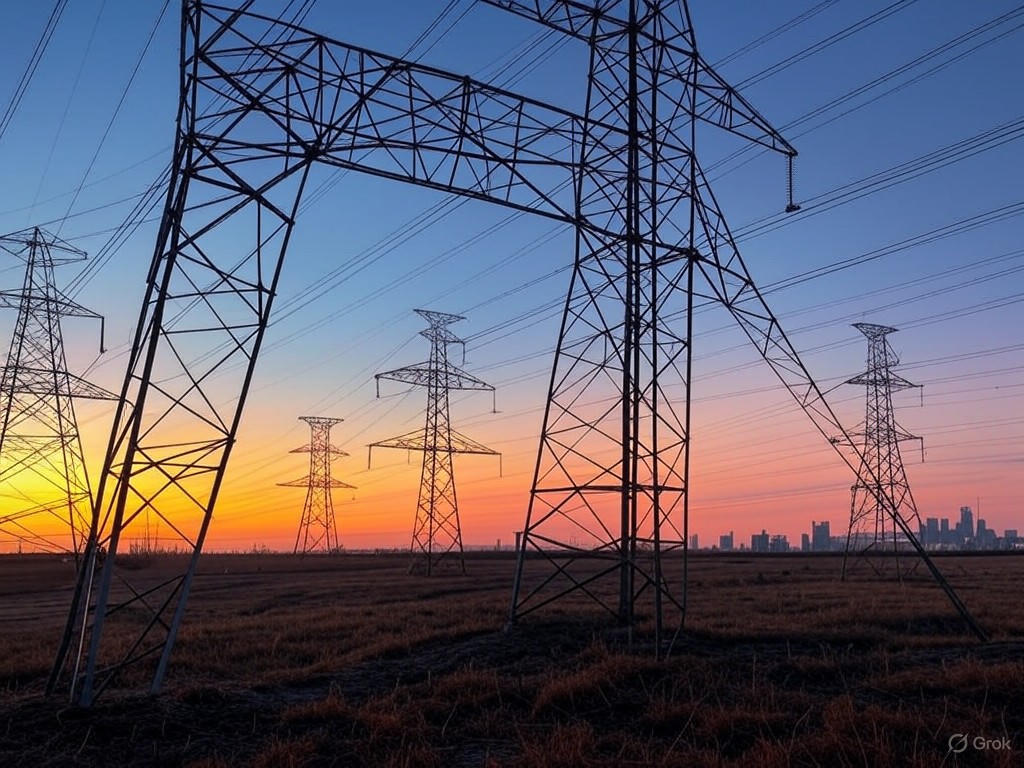Ontario’s Electricity Feud: A Lesson for Global Trade Wars
Spot News 24 Editorial
In the grand tapestry of Canadian commerce, where provinces jostle like old riverboat captains vying for the best bend in the Mississippi, the tale of Ontario’s recent pause on electricity surcharges offers a timely yarn. Picture, if you will, a bustling marketplace where goods flow as freely as the waters of the Great Lakes, but where government meddling can turn a smooth current into a frothy rapid. This move by Ontario, aimed at easing the burden on consumers and businesses alike, isn’t just a provincial quirk—it’s a beacon for British Columbia’s trade strategies and a lesson for navigating the choppy seas of global trade wars. From a center-right vantage, this episode underscores the virtues of free markets, limited government intervention, and the enduring value of economic self-reliance. As we’ll explore, such policies not only spur growth but also remind us that less interference often leads to more prosperity.
The Ontario Experiment: A Pause That Refreshes
Ontario’s decision to temporarily halt electricity surcharges in late 2023 was no small affair. Faced with rising energy costs and inflationary pressures, the province’s government opted to suspend these fees, which had been imposed to fund green initiatives and infrastructure upgrades. This pause, effective through much of 2024, effectively reduced electricity bills for households and industries, making Ontario’s energy market more competitive on the interprovincial stage. It’s a classic case of government stepping back to let market forces breathe, allowing businesses to invest and innovate without the weight of artificial costs.
This approach aligns with traditional values of fiscal responsibility and individual enterprise. Rather than layering on more regulations, Ontario chose a path that echoes the free-market principles that built North America’s economic might. As The Wall Street Journal noted in their analysis, such measures can stimulate economic activity by lowering barriers to trade, particularly in energy-dependent sectors like manufacturing and technology. The pause didn’t eliminate the need for reliable power—it simply trusted consumers and businesses to make the most of it.
To visualize this shift, consider the following:

The illuminated grid of Ontario’s power lines at dusk symbolizes the province’s strategic pause on surcharges, highlighting how reduced government fees can light the way for economic vitality.
Lessons for British Columbia: Trade Strategies in a Federal Context
Now, turn your gaze westward to British Columbia, where politicians grapple with their own energy and trade dilemmas. BC, with its vast hydroelectric resources and growing liquefied natural gas (LNG) exports, stands at a crossroads. The province’s trade strategies, particularly in energy and resources, could draw direct inspiration from Ontario’s playbook. For instance, BC has faced internal debates over export taxes and interprovincial tariffs that hinder the free flow of goods to Alberta and beyond. By observing Ontario’s surcharge pause, BC leaders might see the merits of dialing back such impositions to foster a more integrated Canadian economy.
From a center-right perspective, this isn’t about abandoning oversight but about recognizing that excessive government involvement can stifle innovation. Ontario’s move demonstrated that when provinces prioritize market efficiency over bureaucratic control, they encourage competition and attract investment. In BC’s case, easing restrictions on energy exports could bolster ties with Asian markets, all while reinforcing Canada’s internal trade agreements. Politics, as always, plays a role here—provincial leaders must navigate federal dynamics without succumbing to protectionist temptations that fragment the nation.
Evidence from recent economic reports supports this view. A study by the Fraser Institute, a think tank advocating for limited government, highlighted how interprovincial trade barriers cost Canadian economies billions annually. As The Financial Times reported, provinces like BC that reduce such barriers often see GDP growth outpace those that don’t. Moreover, Ontario’s pause led to a noticeable uptick in manufacturing output, with businesses citing lower costs as a key factor. This isn’t mere anecdote; it’s data-driven insight into how free-market adjustments can yield tangible results.
Of course, balance is key. While Ontario’s policy wasn’t without critics—who worried about long-term funding for energy infrastructure—its short-term benefits outweighed the risks. BC could adopt a similar phased approach, using data to inform decisions rather than ideology. As we weave this narrative, it’s worth pausing to reflect on the broader canvas:

A detailed map of Canada’s interprovincial trade routes illustrates the interconnected pathways that Ontario’s policy could help strengthen, fostering a more unified national economy.
Evidence and Implications: From Provincial Politics to Global Trade Wars
Delving deeper into the evidence, Ontario’s surcharge pause offers a microcosm of larger trade dynamics. According to data from Statistics Canada, the province saw a 3.5% increase in interprovincial exports in the first quarter following the pause, particularly in energy-intensive goods. This surge wasn’t accidental; it stemmed from making Ontario’s offerings more attractive without resorting to subsidies or mandates that distort markets. Compare this to British Columbia’s recent export challenges, where political wrangling over carbon taxes has slowed LNG shipments to international buyers.
The parallels to global trade wars are striking. In an era of escalating tariffs—witness the U.S.-China skirmishes—nations can learn from Canada’s internal successes. Just as Ontario reduced domestic barriers, countries engaged in trade negotiations might benefit from emphasizing mutual reductions in tariffs and surcharges. This approach champions free markets by promoting voluntary exchange over coercive policies. As CBC News analyzed in their coverage, such strategies could de-escalate tensions, much like how the Canada-United States-Mexico Agreement (CUSMA) has encouraged cross-border flows.
Here’s where politics enters the fray. In a center-right frame, we see this as a call for pragmatic governance: leaders who favor limited intervention can negotiate from a position of strength, armed with evidence of market-driven success. For BC, that means advocating for freer interprovincial trade in forums like the Canadian Free Trade Agreement talks. Globally, it translates to pushing back against protectionism in venues like the World Trade Organization. Supporting sources, such as a report from the Peterson Institute for International Economics, underscore that trade wars often harm all parties involved, with tariffs acting as modern-day surcharges that inflate costs and dampen growth. As The Wall Street Journal aptly put it, “Nations that prioritize open markets weather storms better than those that build walls.”
To encapsulate, let’s not forget the human element. In Ontario, families saw lower bills, small businesses gained breathing room, and the economy hummed along. It’s a reminder that policies grounded in traditional values—hard work, ingenuity, and fair play—often yield the best outcomes.
Conclusion: Charting a Course for Free-Market Futures
As we draw this tale to a close, Ontario’s electricity surcharge pause stands as a testament to the power of restrained government in an interconnected world. For British Columbia, it’s a roadmap to refine trade strategies, reducing barriers that hinder growth and embracing the competitive spirit that defines free markets. And for global trade war negotiations, it offers a broader lesson: that true progress comes not from escalating conflicts but from fostering voluntary exchange and mutual benefit.
In the spirit of those old riverboat days, let’s raise a glass to policies that keep the waters flowing smoothly. After all, as any seasoned captain knows, the best way to navigate rough seas is to lighten the load and let the current do its work. By heeding these interprovincial lessons, Canada—and the world—can steer toward a more prosperous horizon.

